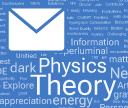In preparation for a conference entitled “Distributed Consensus with Cellular Automata & Related Systems” that we’re organizing with NKN (= “New Kind of Network”) I decided to explore the problem of distributed consensus using methods from A New Kind of Science (yes, NKN “rhymes” with NKS) as well as from the Wolfram Physics Project.
A Simple Example

✕
BlockRandom[SeedRandom[77];
Module[{pts =
RandomPointConfiguration[HardcorePointProcess[0.09, 2, 2],
Rectangle[{0, 0}, {40, 40}]]["Points"], clrs},
clrs = Table[
RandomChoice[{.65, .35} -> {Hue[0.15, 0.72, 1], Hue[
0.98, 1, 0.8200000000000001]}], Length[pts]];
Graphics[{EdgeForm[Gray],
Table[Style[Disk[pts[[n]]], clrs[[n]]], {n,
Range[Length[pts]]}]}]]]
|
Consider a collection of “nodes”, each one of two possible colors. We want to determine the majority or “consensus” color of the nodes, i.e. which color is the more common among the nodes.
One obvious method to find this “majority” color is just sequentially to visit each node, and tally up all the colors. But it’s potentially much more efficient if we can use a distributed algorithm, where we’re running computations in parallel across the various nodes. Continue reading

















